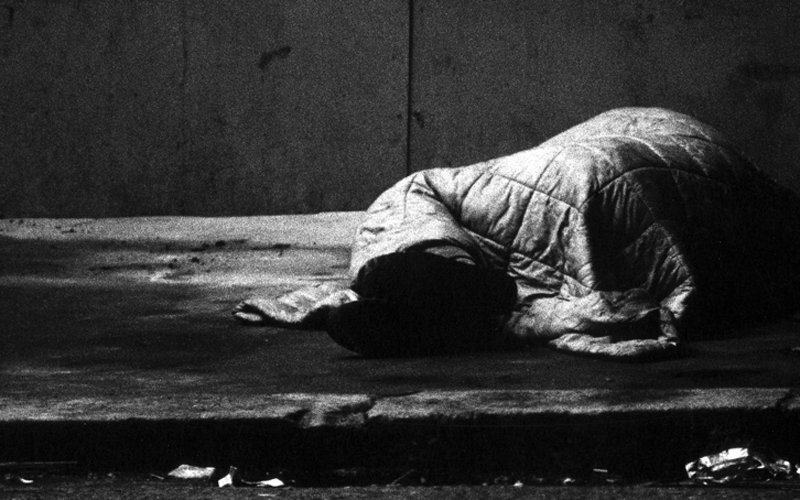
by Allen Reynolds, UrbanFaith Editor | Mar 30, 2024 | Commentary, Headline News |
Is it time for Easter again? It doesn’t feel like Easter season. Easter (or Resurrection Sunday for the purists) is around the corner, and yet many Millennials feel little reason to celebrate. When I think of Easter, I think of special sermons, church presentations, fancy outfits, and big dinners. I also think of bunnies, eggs, and baskets thanks to corporate marketing. Ironically, what I don’t think about immediately is the Resurrection. But isn’t that the reason for the season?
Selective Memory
 For the past few years, social media campaigns have tried to remind people that Christmas is about Jesus’ birth. It has become so commercialized that people come out of the woodwork you didn’t even know were Christian. They remind everyone following them that Jesus is the reason for the season, that Jesus is the best gift we could get in the season, that Jesus wants us to give in this season, and that we should be content whether we get other gifts or not.
For the past few years, social media campaigns have tried to remind people that Christmas is about Jesus’ birth. It has become so commercialized that people come out of the woodwork you didn’t even know were Christian. They remind everyone following them that Jesus is the reason for the season, that Jesus is the best gift we could get in the season, that Jesus wants us to give in this season, and that we should be content whether we get other gifts or not.
But Easter doesn’t have gift-giving traditions. Were it not for multi-colored chocolate eggs, most of us would not even think about what we receive on that holiday. But Easter is supposed to be the center of the Christian faith. Jesus goes to the Cross, dies for our sins, and resurrects with power, giving hope of salvation to all the earth.
Perhaps one of the reasons why Easter doesn’t immediately remind us of resurrection is because resurrection hope seems so far removed from our current situation. Current events in our world—from politics to protests, global warming to global injustice, doubt in our lives and doubt in our faith—have caused many to lose hope.
The Sweet By-and-By
It is hard to think about the hope of resurrection when we are surrounded by so much death. But that is exactly why we as Christians need to remember the Resurrection. What greater hope is there in the midst of a death culture than the revelation that death is not the end of the story? That our God loved us enough to take death on Himself and then overcame death itself?
Resurrection is not just about “the sweet-by and-by” either. We have to hold on to the promise of life after this life, but resurrection also comes when we hear the testimonies of those who are still living, still striving, still fighting, still hopeful despite facing ridiculous obstacles and even threats to their very lives.
Jesus gives new hope to a woman with an issue of blood who was treated as dead by society, and He not only wasn’t afraid of a man with a legion of demons, He set the man free and made him a missionary. Jesus is hope for resurrection in a world that needs new life.
Time to Remember
It could be because of Saint Patrick’s Day that takes place around the same time, so people are focused on Irish beer and clovers. It could be because we feel like we’ve heard the Easter sermon before, so we’ll catch it on livestream. It could be that you didn’t know Mardi Gras, Carnival, and Lent had anything to do with Easter, so it just isn’t in your mind.
It could be because no one you know buys Easter clothes, or because there will be no big dinner, or because you’ve got so many other things going on that you just forgot. But whatever the reason we weren’t thinking about the Resurrection yet for Easter, we should take time to remember it now.
It is the story of our salvation. It is the “right now” power of God. It is what we need to face today together.

by Andrew Wilkes | Mar 2, 2022 | Headline News |
 During Lent, we commemorate the life, death, and resurrection of Jesus the Christ. As if it were New Year’s Eve, most Christians make a Lenten resolution, consecrate it with prayer, and stick it out until Easter. Our concern for particularity in this moment, while laudable, can prevent us from grasping — and being grasped by — a broader sense of mission. The immediacy of figuring out, “What am I going to give up?” can prevent us from asking, “What sort of person is God calling me to be within the church and the world?” The first question pivots around our personal aspirations; the second one opens up a vista of service and mission. Developing the latter theme, we might approach Lent as an opportunity to embrace the care of Christ and emulate his ministry of coming alongside and caring for the least of these.
During Lent, we commemorate the life, death, and resurrection of Jesus the Christ. As if it were New Year’s Eve, most Christians make a Lenten resolution, consecrate it with prayer, and stick it out until Easter. Our concern for particularity in this moment, while laudable, can prevent us from grasping — and being grasped by — a broader sense of mission. The immediacy of figuring out, “What am I going to give up?” can prevent us from asking, “What sort of person is God calling me to be within the church and the world?” The first question pivots around our personal aspirations; the second one opens up a vista of service and mission. Developing the latter theme, we might approach Lent as an opportunity to embrace the care of Christ and emulate his ministry of coming alongside and caring for the least of these.
Embracing the care of Christ can be painful, for it often requires a prior admission that we are wounded. Many recent college graduates work hard to secure employment and repay loans, only to experience job loss, a reduction of responsibility, or another economic shift causing them to move back in with their parents. They are wounded. Some 222,000 veterans have returned from Iraq to a jobless recovery, a gridlocked Congress, and employers who cannot grasp the relevance of leadership skills honed in a military context. They, too, are wounded.
Our individual ailments differ, but we share an Augustinian solidarity. The bishop of Hippo suggests that we are Good Samaritans, called to love across differences of race, class, religion, and other social realities. Yet we are also recipients of God’s boundary-bursting, Samaritan love — Jesus found us by the side of the road, bandaged our wounds, and nursed us into wholeness by the power of his Holy Spirit.
As a community whose health has been and is being restored, Christ calls us to tend to the social ills of his people and all people. Matthew 25:31-46, in particular, underscores the importance of feeding the hungry, clothing the naked, visiting those who are in prison, and welcoming the stranger.
By caring with and for society’s most vulnerable members — Jesus calls them “the least of these” — we bear witness to the in-breaking of God’s kingdom in Christ. We embody his love by performing acts that immediately address the maladies of drug addiction, domestic violence, and chronic sickness. Moreover, our engagement in intermediate, systems-transforming work on behalf of the least of these — inmates, immigrants, gay and lesbian military personnel, and so on — testifies to the restorative justice of God’s kingdom in Christ.
Such care, whether personal or structural, does not itself build or establish God’s kingdom. To claim that it does collapses human initiative into divine work (making devils out of those who may oppose it for well-argued reasons) and, more dangerously, runs the risk of idolizing the stratification of power that enables such change (e.g., relief and development arms of denominations or national governments become sacrosanct instruments beyond critique). Our individual and collective care for “the least of these” represent necessary and yet feeble attempts to follow in the footsteps of our Lord who prioritized the marginalized in his ministry. Our call is not about politics, not about ideology, but about modeling the love and justice of Christ. Cornel West has famously remarked that, “Justice is what love looks like in public.” What does our Christian faith look like out on the street?
Lent reminds us that the church’s social service and justice-making efforts fall short of God’s glory, that our best attempts to repair the world are still broken, leading us to depend anew on the care of Christ. We are weak, but the consolations of our Lord are strong; through him we discover the strength to love, the power to carry on.

 For the past few years, social media campaigns have tried to remind people that Christmas is about Jesus’ birth. It has become so commercialized that people come out of the woodwork you didn’t even know were Christian. They remind everyone following them that Jesus is the reason for the season, that Jesus is the best gift we could get in the season, that Jesus wants us to give in this season, and that we should be content whether we get other gifts or not.
For the past few years, social media campaigns have tried to remind people that Christmas is about Jesus’ birth. It has become so commercialized that people come out of the woodwork you didn’t even know were Christian. They remind everyone following them that Jesus is the reason for the season, that Jesus is the best gift we could get in the season, that Jesus wants us to give in this season, and that we should be content whether we get other gifts or not.

 During
During